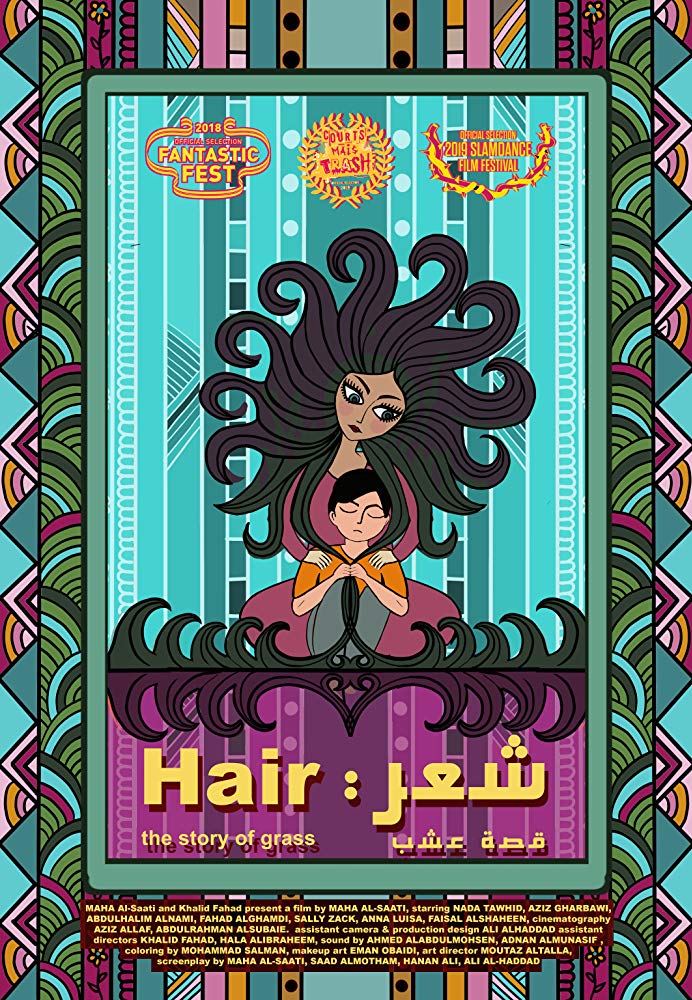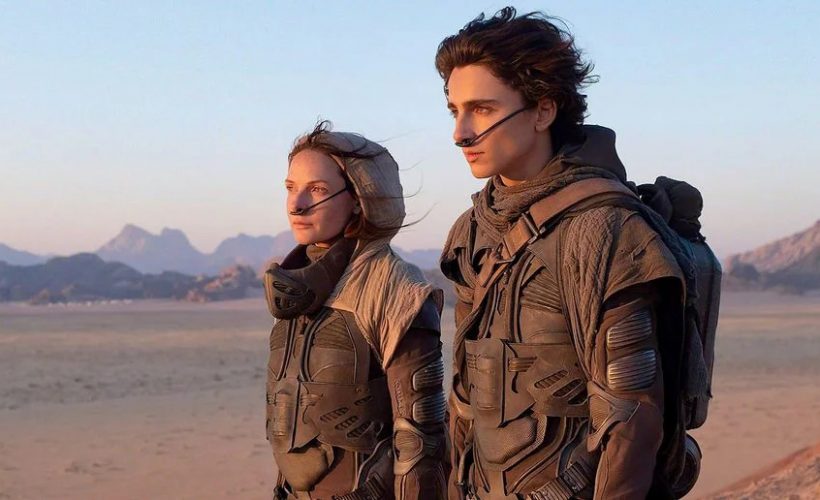Lifestyle
2.11.2019
Maha El Saati, the fantastic UFO from Saudi experimental cinema

Born and raised in Dammam, Maha al Saati developed very soon an interest in storytelling. After a PHD in Interactive Art and Technology from the University in Canada, she finally came back to her native country where she teaches graphic design, while she is not busy making movies. Her last one: Hair: the story of grass, a fantastic tale about hair fascination and revulsion, has been selected at the official selection of Slamdance 2019 and Fantastic Fest 2018. An encouraging start for the experimental filmmaker who tackles sensitive topics such as religion and gender injustices in a subtle mix of humor and fantasy.
You have a background in architecture and interactive art & technology. What was the trigger of your appeal for filmmaking?
Ever since I was young, I used to draw comics and write stories. It’s when I went to Dubai film festival in 2015 and started to talk with a lot of filmmakers that I found the motive to make films myself. I was so impressed. At the same time, I came back to Saudi from Dubai and there was this announcement of the 2016 Saudi Film Festival. I borough a camera and some lenses from friends, and I made my first film in 4 weeks, just before the submission deadline.
In your movies, like Hair: the story a grass or Eat Me: Cycle of Apples, you address the gender imbalance. When did you start realizing injustices between men and women?
I cannot nail down on a specific age I realized that. I just remember that when I was graduating from high school, they asked me to write something in the Year book and to read it for the celebration day. My statement was something like “ I want women to do things the same way men do”. Everybody was clapping. We were in 1999, and it was a very feminist statement before feminism became such a thing in Saudi Arabia. I wasn’t even aware of the term feminism at that time.
Why a movie about hair?
Since you are very young girl, you are always told to be this or that in order to look pretty. Before laser surgery became so popular in the Middle East and the Arabian Peninsula, there was already waxing and all other kind of tortures. Sometimes, when I go to the university, I see a booth with hair removing products, or sponsored ads for discounted laser session in a clinic And that comes from an educational institute. This how much the psyche is obsessed with body hair. So I wanted to explore all the aspects of hair in a crazy movie.
You also point out the differences of perception between men and women body hair. Can you tell us more about it?
In the arabic culture in general, and in Saudi, there’s a saying for a man who is manly. We say “he is shanab”, which means moustache but also that he is really masculine. If nowadays it is more fashionable to wear a bear rather than a moustache, I wanted to understand why hair should define what a man is. An other funny thing: during our crew screening of the movie, there was a little boy and when he saw the girl character waxing her hair during the film, he said “ugh”. It shows how much people are conditioned at such a young age about what is socially “acceptable” or not.
In your previous short film, Fear Audibly, you deal with religious anxiety. Why such a topic?
That was part of my childhood growing up in Saudi, but I also think that this fear of the end of days is part of so many cultures and religions. Even Hollywood is full of that. When I was growing up, the country was a very religious and a lot of people had that fear of judgment day. I remember in classrooms, sometimes the teacher would tell us about it and we would be so scared. Also in Canada, the muslim youth groups had this special topics and lectures to talk about it. When you hear those stories at a very young age, it becomes ingrained in you and stays with you forever. I wanted to make a film about it, like a therapeutic process for me.

Was it influenced by your own experience in Saudi Arabia?
Of course! In every film I make, I put my own experience into it. In Canada, I used to have a group of religious friends but at my office, in the space where we were doing researches, almost everybody was atheist. Those two worldviews are coexisting, but being at peace with both of them took me years. My movie was shot in 2016-2017, during a very transitional time in the Saudi Arabia. There was a lot of change in the country and things were starting to open up a little bit more. I wanted to document those changes in a very personal way.
Your universe is very fantastic. Where do you take your inspirations from?
I am from the MTV generation. In the mid 90’s, my grandmother had the satellite and I was watching some video clips and I was very fascinated by the way images were sticking to the music. Because of my very religious upbringing, there was this guilt feeling about music. But when I became more comfortable with it, I started to be crazy with playing music in my videos.
Some people criticise a lot the fantasy side of my work and don’t really understand, but after I went to the fantastic fest in Austin, I realized there was an audience for it. Before, I was trying to turn down my craziness and now I can actually work with it.
Why did you choose to be an independent filmmaker?
I love to stay independent because I don’t have to go through the all process of approval and asking for permissions. Otherwise, it would take months and as I see every film as a learning opportunity, I want to make as many as I can. Most independent movies here are the fruit of a collaboration between filmmakers and someone who already has equipment and is passionate about making films for leisure. Almost all the movies I made depend on volunteers, but people here are very enthusiastic.That is one thing I like about arab culture, there is a strong sense of community and people always help each other.
Trailer of Hair : the story of grass
popular

